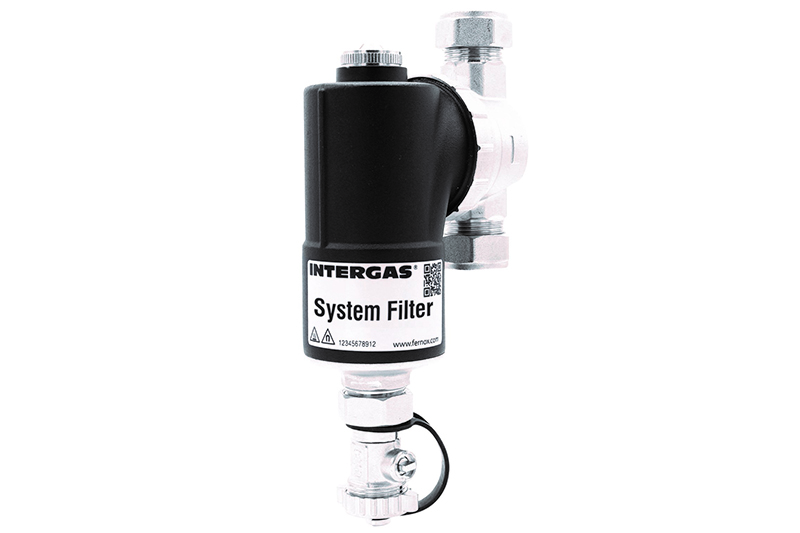
Intergas Boilers, in collaboration with Fernox, has launched the Intergas System Filter. Made from nickel-plated brass with a stainless steel particle filter, this in-line system filter will not only optimise the energy efficiency and longevity of the central heating system, it will also make compliance with BS 7593:2019 and Part L of the Building Regulations easier. For installers of Intergas boilers there’s an additional benefit: two more years will be added to the boiler’s warranty (contracts excluded). To be eligible, installers must fit the filter and boiler on the same date and in line with the Manufacturer’s Instructions, and both warranties must be registered with Intergas at the same time.
The Intergas System Filter includes a 22mm spigot isolation valve (for the bottom connection) and Fernox’s Hydronic Particle Separation with magnetic filtration, which removes magnetic and non-magnetic system debris. When it comes to cleaning, there’s no need to dismantle the filter and, thanks to its encapsulated body, the whole process is fast and easy; there’s no top seal either.
The TF1 Omega flushing adapter, which is available separately, makes it easier to flush and clean the entire system from the filter point at full flow rate. The spigot valve works in conjunction with the boiler return valve to isolate the filter or, using just the spigot valve and boiler flow valve, you can easily drain the boiler down via the filter’s flushing/draining valve. The system filter is hassle-free to install on horizontal or vertical pipework and comes with a 15-year warranty. Made entirely from metal, it’s also 100% recyclable.
Speaking about the introduction of the new Intergas System Filter, John Lawton, Technical Product Manager at Intergas, said: “Taking a more holistic approach to installations is better for installers, customers and the environment. So, while our filter is undoubtedly good news, it’s essential to recognise the importance of maintaining the whole heating system. A high proportion of boilers that fail in the first year do so because of poor water quality. By initially chemically cleaning, flushing and treating the system to BS 7593:2019, and introducing regular testing and re-dosing, the efficiency and life expectancy of most domestic central heating systems can be significantly improved.”














